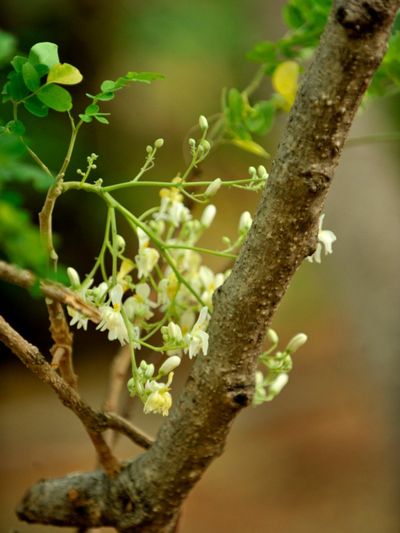What is a Moringa Tree?
The moringa (Moringa oleifera) tree, also known as the horseradish or drumstick tree, is native to the Himalayan foothills in India and Bangladesh. An adaptable plant, the Moringa is grown throughout India, Egypt, Africa, Pakistan, the West Indies, Philippines, Jamaica, Cuba, as well as Florida and Hawaii. Wherever the conditions are tropical or subtropical, this tree will thrive. There are over 13 species of the tree and all parts are used for food or medicine in various parts of the world. Seeds are eaten in some parts like peanuts. Leaves are commonly used for salads and have a very high nutrient value, packed with vitamins and antioxidants.
Growing Moringa Trees
Moringa trees grow best in temperatures between 77 to 86 degrees F. (25-30 C.) and will tolerate some light frosts. Moringa prefers well-drained sandy or loam soil with a neutral pH level. Though it tolerates clay soil, it cannot be water logged. Choose a sunny location for the tree. You should plant moringa seeds an inch deep (2.5 cm.), or you can plant branch cuttings in a hole that is at least 1 foot (31 cm.) deep. Space multiple trees about 5 feet (1.5 m.) apart. Seeds sprout readily in one or two weeks and cuttings will normally establish within this same time period.
Moringa Tree Care
Established plants require little moringa tree care. After planting, apply a general household plant fertilizer and water well. It is important to keep the soil moist but not overly wet. You do not want to drown or rot the seeds or cuttings. Keep the planting area free of weeds and rinse off any pests that you find on the growing tree using a water hose. As the tree matures, trim off older branches to encourage fruiting. First year flowers should be removed as they bloom to encourage fruiting in the following years. Since this is a fast-growing tree, annual pruning to a shrub form will help keep its growth under control. You can also cut the tree to about 3 or 4 feet (around 1 m.) above the ground.
Moringa Trees for Life
It is because of its amazing nutrient quality the moringa tree is often referred to as the moringa miracle tree. This tree contains more vitamin C than an orange, more vitamin A than a carrot, more calcium than milk, and more potassium than a banana. As a result, in underdeveloped countries around the world, health organizations are planting and distributing moringa trees to provide missing nutrients to hungry people.
